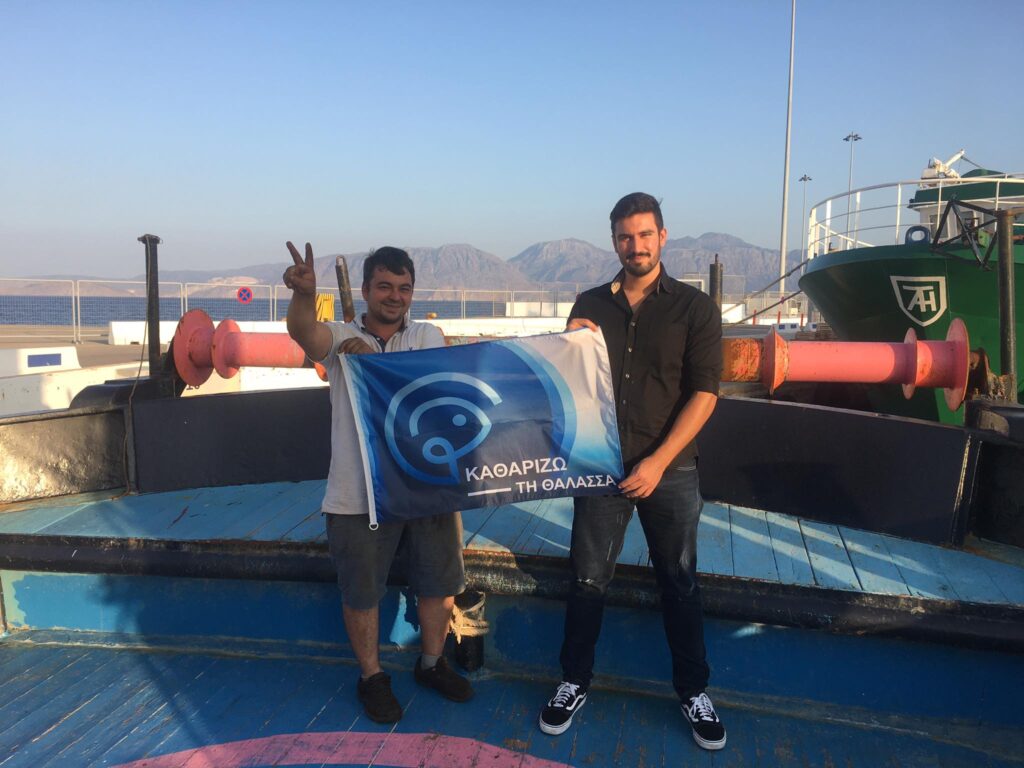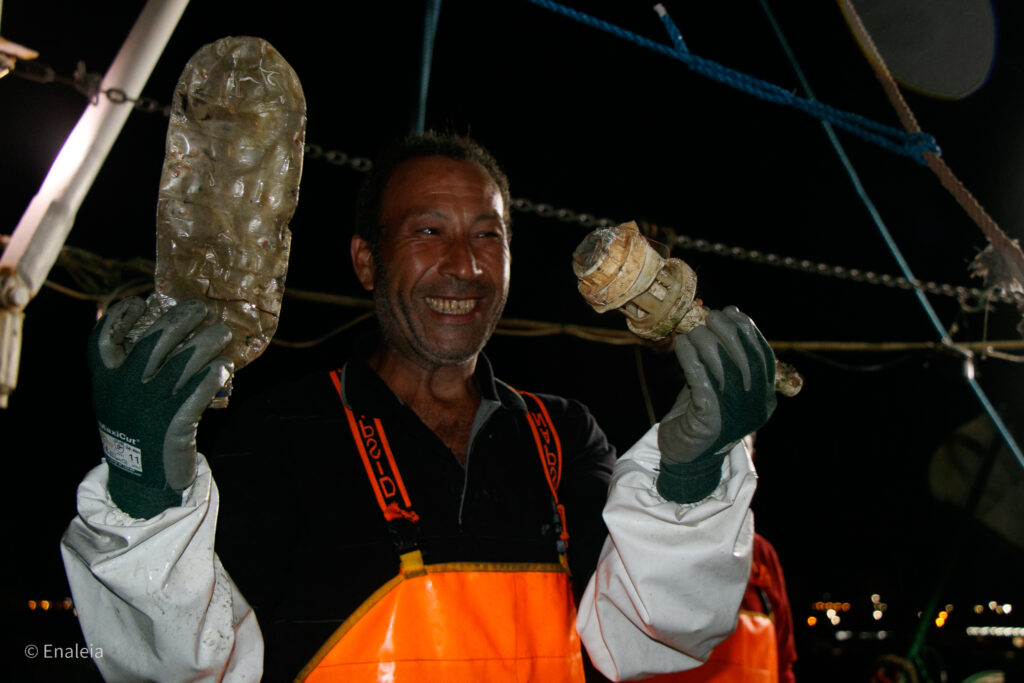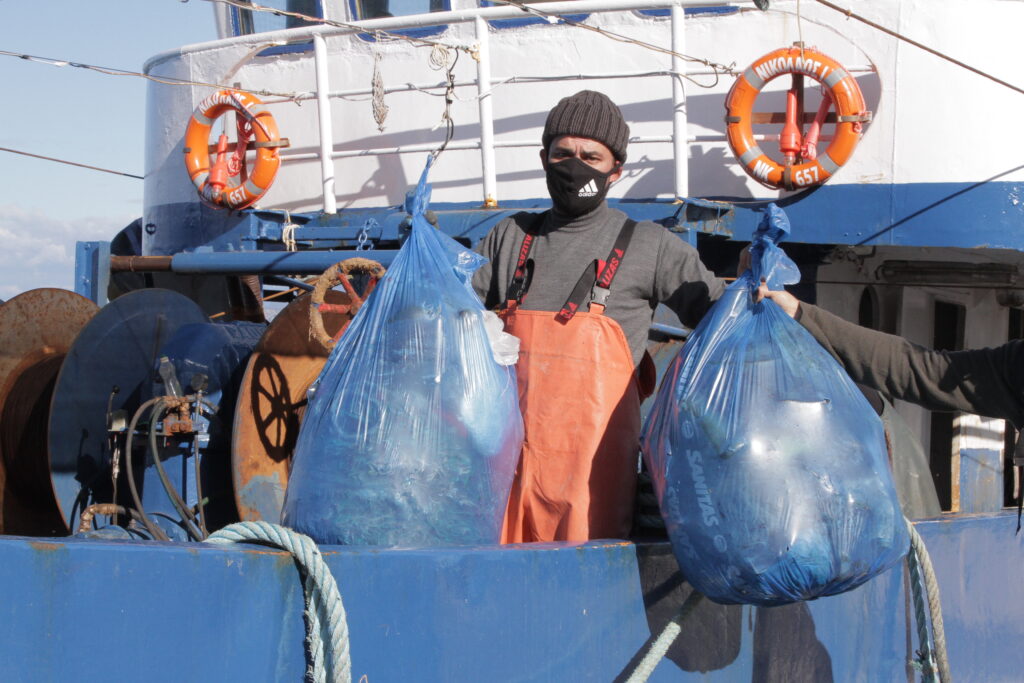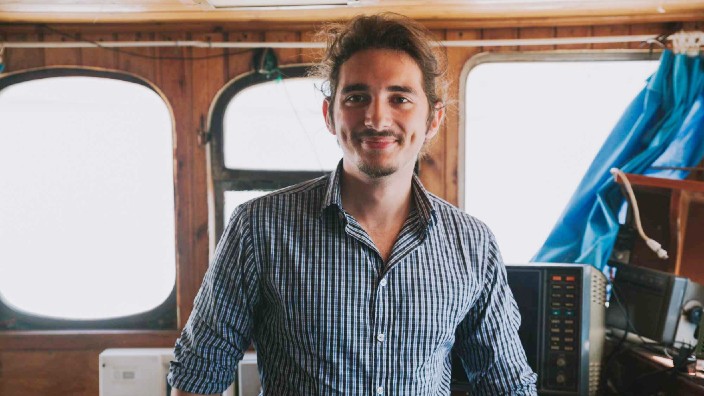By Ilias Karagiannis.
Lefteris Arapakis was named one of seven ‘Young Champions of the Earth’ by the United Nations at the end of 2020. He was the only European to be awarded in the UN Environment Program.
At just 26 years of age, Arapakis was honoured as the founder of Greece’s first professional fishing school, Enaleia. The school trains, strengthens and motivates the local fishing community to collect plastics from the sea, allowing fish stocks and the ecosystem to recover.
“It is a very important award, because it shows us that we are on the right path, that we are in the right direction for a more sustainable future,” Arapakis tells The Greek Herald.
“It is a recognition of the efforts of the whole team and the organisation. It also creates a very strong sense of responsibility. Now I feel we need to step up our efforts for a more sustainable planet, inspire more people and make a bigger impact.”
Lefteris Arapakis comes from a family of fishermen. For five generations his family has been active in the rich waters of Southern Greece. In 2016, he decided to establish Enaleia, without ever imagining that he would even receive an award from the UN.

“What pushed me to work with the fishing industry was that at the peak of the economic crisis in Greece, unemployment had jumped to 29% that year. At that time, I was talking to my father… and he told me that they were looking to hire staff on fishing boats and couldn’t find any,” Arapakis says.
“So we decided with a friend to start Enaleia, and through it to create the first school for professional fishing in Greece. The school is still open today, and we have trained more than 110 unemployed people in the fishing industry.
“Therefore, our starting point was the creation of new jobs and at the same time, the spread of new, sustainable fishing techniques, such as fishing tourism.”
The recycling of waste into products:
While Lefteris Arapakis’ initial motivation was to modernise the fishing profession, he quickly realised that the problem with plastic waste was out of control. And so, a side involvement began for Enaleia.
“We had heard that by 2050 there would be more plastic than fish in the seas. But I realised it for the first time, when we made our first fishing trip in the Cyclades,” Arapakis recalls.
“What struck me was that the fishermen were taking out not only fish, but also a lot of plastic through their nets. Specifically, it was a soft drink box that caught my interest, which had faded over the years. It had an expiration date in 1987, it was 30 years in the sea.
“While I was looking at it, the fisherman took it from my hands and threw it into the sea, saying that “plastics are not our problem.” We realised that it does not make sense to “bring out” new professionals in the industry, when there will be no fish.

“So, when the school procedures were organised, we trained the fishermen from Piraeus to bring the plastics they caught back to the port and the truth is that we were impressed by the quantities of plastic they cleaned.
“Therefore, we decided to extend the action to the rest of Greece, having a presence in 13 ports in Greece and Italy, a total of 145 medium fishing vessels, about 700 fishermen.”
So far, Enaleia has cleaned 80 tonnes of plastic from the seas. Every day a specialised network for collecting and sorting the plastic continues.
“In each port we have a special bin which, when filled, goes to a center, where the material is sorted. So far, about 50% of this material is recycled by local recycling companies… while the rest is used to create new products,” Arapakis says.
The pandemic and future goals:
Of course, the COVID-19 pandemic did not leave Enaleia unaffected.
“The pandemic was a big ordeal for us. During the first lockdown implemented in Greece, several of the collaborations and sponsorships we had were postponed, while at the same time many fishing boats limited their activity due to lack of demand,” Arapakis explains.
“Our first reaction was anxiety and stress. But we realised that we can not influence the pandemic and that we must focus our actions on the situations that we can influence. For this reason, we took advantage of that period and talked to our partners, sponsors, donors, fishermen and asked them what we can improve in our action.

“We learned many useful lessons from these discussions and applied them directly to our work, with impressive results. The first was that we were extracting much more plastic from the sea because we had improved the structures and procedures for the fishermen.
“The second is that we have improved the way we communicate our work. With this as a starting point, Enaleia has grown 4 times in the last six months, we have expanded our presence in more ports, we have quadrupled the number of fishing boats we work with and now we clean more than 4 tons of plastic from the seabed, every week, despite the lockdown.
“The next goals are to motivate more people and organisations to contribute to the cleaning of the seas from plastics, both in Greece and abroad, with the ultimate goal of preventing plastic pollution.
“We are already working with large institutions and companies that share the same vision with us, such as the Costas M. Lemos Foundation, which is the nationwide donor of the action, but also Nestle, to fight plastic pollution.”

